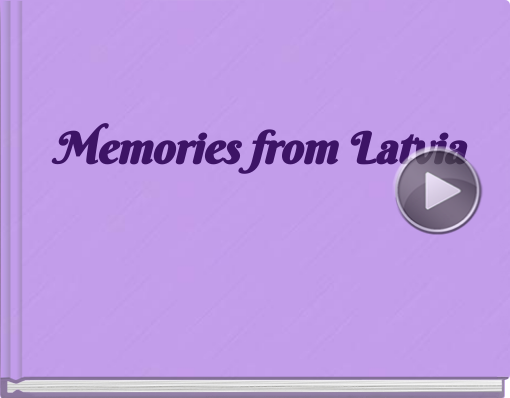October 22nd-26th, 2018
Students in international groups created infographics on topics: economics, education, sports, climate and culture. Students searched for topic data and compared the countries of co-operation. Students presented infogramms and teachers helped find ways to improve the outcome of the task. Internet site https://infogram.com/ was used to create the infographic.
The activity was organized as an orientation around the school. The activity was organized with the help of https://en.actionbound.com At first pupils in international groups (one pupil from each country) got to know each other, discussing what is common to them and what is different. As a common thing students mentioned the interest in participating in sporting activities, the fact that they like music, animals and studying at school. But the differences were language, culture and free time activities. Doing this activity students learned about school and state history and geography. They also learned the thing what is important in the project: information about school curricula and the school environment (cognitive trail). One of the tasks was to create a comparative video about mountain peaks from countries of co-operation.
In the Institute of Mathematics and Computer Science students worked in two workshops. One of them was about artificial intelligence and creation of a digital Latvian dictionary and the nearest plans to improve it. In the second workshop, students strengthened their knowledge about safe Internet, learned about the activities of cert.lv, discussed the signs of recognizing fake news in the email, received suggestions from wise workers how to choose a profession.
A guided tour around Riga was organized. Although the rain fell, the students were very interested in the guide's narration.
The lecture was led by a strategic planner and partner of the creative agency ‘’The Weekend’’ Edgars Pētersons. The lecturer explained why there is no need to remember the facts now and in the future, but there is need for creativity and unconventional thinking. The lecturer highlighted the technological development trends today and in the future.
In two workshops students got acquainted with the work of the Faculty of Food Technology of the University. In the first workshop students learned about the technological possibilities of evaluating the nutritional value of foods. In the second workshop students were given the opportunity to identify the products by their perfume to understand how product quality research is conducted with the help of human abilities. It is very interesting that all the groups recognized lemon, acetic and peppermint scents, but noone recognized the vanilla scent. Students learnt about innovative products in Latvia, for example, https://pupuchi.lv/en/
Students in international groups got to know the history and culture of Jelgava, using tablets and the ActionBound. Students had tasks, for example, on the 3rd floor of the Jelgava Holy Trinity Church to get a certificate on history issues or on the 5th floor to try on Latvian folk costumes and take photo.
Students in international groups simulated the establishment of a company. They divided responsibilities: production director, marketing specialist, accountant, etc.), chose a product to produce (medicine, building blocks or soap). Each employee received his instructions, they participated in a meeting where duties were discussed and everything went on like in the life, except that one year passed during the hour. Students produced products, sold them, received money, purchased raw materials, made contracts and estimated the balance. Participating in the game students used knowledge acquired in mathematics (parallel sketch formation), chemistry (reading chemical formulas) and economics. It was interesting but none of the groups went bankrupt. At the end of the game students assessed the benefits - they understood how to build their own business, realized why they should study mathematics and science at school.
The final result of the project is a student-created game. The subject of the game – professions related to mathematics and science. Working in the international groups students started creating the games. They learned about different games, invented goals and rules of the game and presented the ideas of the game developed in the student groups. Non-formal learning methods were used in students cooperation.
The final result of the project is the worksheets created by the teachers. The idea of the worksheets – students imagine themselves as an employee of one profession and solve problems in mathematics, physics, economics and chemistry. Working in an international group teachers created the first example of a worksheet- work duties of an economist and what problems connected with maths he has to deel with.
Kalnciems Secondary School is an ECO School, so pupils and teachers were involved in eco-activities. Pupils gave their ideas on how to reduce waste in the household, they had to find out the animal, insect and plant of the year 2018 in Latvia, fill in the worksheet about trees and animals in the forests in Latvia. Teachers and students had the opportunity to make eco-products.
It was decided to create a project logo and infographic about occupations in international student groups using the TwinSpace features (forum).
Diary
Students and teachers evaluation
Polish student memories

Italian students memories

ead this book made on StoryJumper

Read this book made on StoryJumper

Read this book made on StoryJumper

Read this book made on StoryJumper
Croatian students memories
Students from France